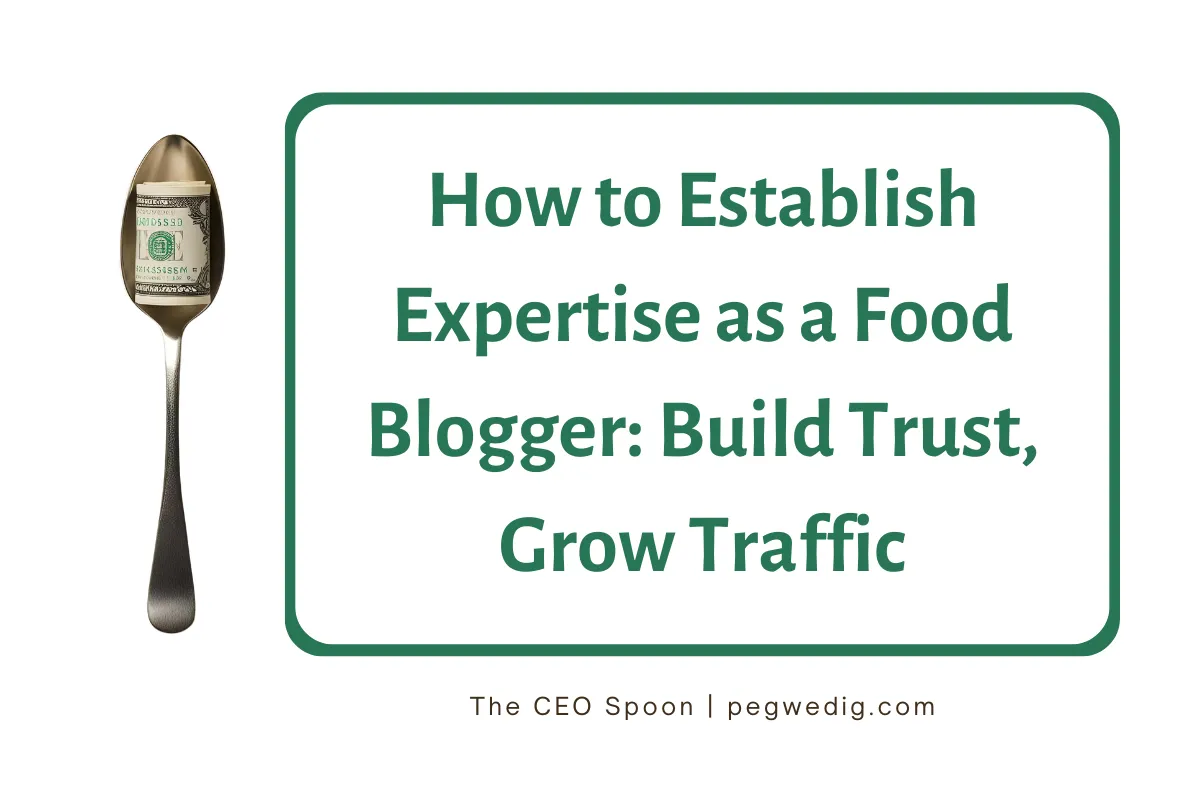
How to Establish Expertise as a Food Blogger: Build Trust, Grow Traffic
You already know your recipes are amazing. But are you positioned as the go-to expert in your niche? Just like a perfectly proofed dough, authority rises with time, consistency, and the right ingredients. In this article, you’ll discover a mindset-powered strategy to help you become seen—and trusted—as the expert you already are.
Why Expertise is Your Secret Ingredient
People don’t just crave recipes. They crave trust. They want to know the person behind the food knows their stuff—because trust feeds clicks, saves, shares, and sales. Your thoughts create your feelings (“I’m a leader in my niche”), and those feelings inspire expert-level actions (like publishing authoritative content, pitching podcasts, or launching products). That’s when results follow and confirm your belief.
Step 1: Define Your Culinary Niche
Expertise begins with clarity. When you try to speak to everyone, your voice gets diluted.
Ask yourself:
What kind of food do I love most?
Who do I imagine I’m cooking for?
What unique POV do I bring?
Examples:
“5-ingredient comfort food for busy parents”
“Gluten-free baking with global flavors”
“Authentic Thai dishes with vegan twists”
A clear niche instantly positions you as someone with focus, direction, and value.
Step 2: Share Deep, Not Just Wide
Experts don’t just post recipes. They teach, guide, and explain.
When you write blog posts:
Go deep into techniques (like “how to make the perfect roux”)
Add personal tips that come from real experience
Include FAQs and pro tricks that only someone who’s “been there” would know
Embed your authority naturally. Readers should feel that you’re guiding, not guessing.
Step 3: Show Your Credentials (Even If You Don’t Have a Degree)
You don’t need a culinary school diploma to be an expert, but you do need to show your credibility. This includes:
Years of experience cooking, testing, or teaching
Places your work has been featured
Products, such as cookbooks and meal plans
Testimonials from readers or collaborators
Metrics like “2M+ Pinterest saves” or “30K newsletter subscribers”
Display this on your About page, media kit, homepage, and in your content. Let your results speak your expertise aloud.
Step 4: Be Consistently Present and Valuable
Experts show up regularly and with purpose. That means:
Posting consistently on your blog and email list
Updating old content to keep it fresh
Offering value on social media, not just promotion
The subconscious message is clear: “You can rely on me.” And readers do.
Want help clarifying your niche and establishing your expertise?
Step 5: Collaborate Like a Pro
Being seen as an expert is easier when you’re standing next to other experts.
Pitch collaborations like:
Guest posts or podcast interviews
Recipe swaps with aligned bloggers
Co-hosting IG Lives or YouTube videos
This boosts your credibility through association and expands your reach.
Step 6: Adopt the Thought: “I’m Already an Expert”
Here’s where mindset comes in. Most food bloggers wait to feel like an expert before acting like one. But the truth is, action creates belief.
Start with this thought: “I am already an expert in the eyes of someone who needs what I offer.”
Feel the shift? Now take a confident action:
Apply to speak at a summit
Pitch your recipes to a digital magazine
Update your bio to reflect your authority
As you imagine applying this strategy, which one confident action comes to mind?
Your Expertise Recipe
Define your niche clearly
Write content with depth and guidance
Highlight your credibility and results
Stay consistent in your presence
Collaborate with respected voices
Believe it’s already true
The expert you want to become? She’s already in your kitchen. You just have to invite her forward.
Let’s craft your expert brand together.
Book a discovery call and start building your recipe for success.
FAQs
Q1: How long does it take to be seen as an expert food blogger?
A: It depends on consistency and clarity. Many bloggers establish strong authority within 6–12 months by posting consistently and offering deep value.
Q2: Do I need a certification to be considered an expert?
A: No! Expertise can come from lived experience, tested recipes, and a clear voice. Results and impact matter more than degrees.
Q3: What’s one quick way to boost credibility today?
A: Update your About page with a confident, niche-aligned bio and a list of results, mentions, or milestones.
